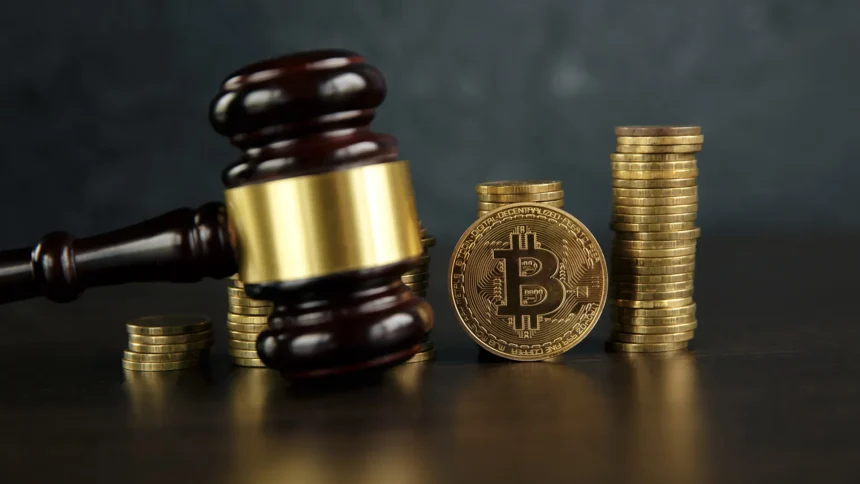
- Regulators have allegedly used indirect pressure tactics to stifle the crypto industry’s access to financial services, highlighting systemic challenges.
- Coinbase’s legal battle against Tornado Cash sanctions sets a precedent for protecting innovation in the decentralized technology space.
In a recent talk on Anthony Pompliano’s channel, Coinbase’s Chief Legal Officer, Paul Grewal, went in-depth about the combative techniques authorities have used against crypto. The disclosures underlined not just the difficulties but also the resiliency of the company since they highlighted the growing conflict between regulatory authorities and the crypto sector.
Regulatory Overreach: Coinbase’s Struggles with the SEC and FDIC
Grewal went into great length on how supposedly overstepped organizations such as the Federal Deposit Insurance Corporation (FDIC) and the Securities and Exchange Commission (SEC). He spoke of cases of “off-record communications” when authorities subtly pushed banks to cut off ties to cryptocurrency.
For instance, certain banks linked with crypto companies experienced audits with many inquiries. Grewal said these strategies were like bullying under the cover of adequate care.
At the leading edge of this regulatory conflict, Coinbase has personally seen “bullying behavior” from the Securities Commission.
After more than thirty official meetings with the SEC to go over compliance and registration, the government finally discounted Coinbase’s efforts without specific direction. These exchanges create a perception of regulatory antagonism instead of responsible control.
Operation Chokepoint 2.0: A Threat to Crypto’s Legitimacy
Among the most concerning tactics covered was the idea of “Operation Chokepoint 2.0,” devised by crypto activist Nick Carter. This strategy cuts off access to basic banking services, therefore targeting sectors judged contentious. Originally used in industries like gambling and drugs, this approach has lately spread to cryptocurrency.
Regulators can subtly restrict sectors by using control over the banking system, therefore negating clear laws. From payroll to supplier payments, Grewal noted that limiting access to financial services is a potent weapon that disturbs daily operations of companies.
He underlined that such behaviors, especially against a legitimate and creative sector like crypto, not only contradict American principles but also create a dangerous precedent.
Tornado Cash Case: Safeguarding Innovation and Legal Clarity
Another important case under discussion was the authorization of the privacy-conscious crypto Tornado Cash. There were major questions when the U.S. Treasury decided to classify the protocol as sanctionable instead of focusing on particular bad actors.
Grewal contended that this action amounted to a great overreach, maybe criminalizing justifiable uses of privacy technologies.
Supporting a legal challenge against this ruling, Coinbase emphasized the need of safeguarding innovation even as guarantees of compliance demand compliance.
The case produced a U.S. Court of Appeals decision declaring that the Treasury’s conduct broke the law, therefore establishing a crucial precedent for the direction of decentralized technology. This triumph underlined the need for legal clarity and due process in regulating developing technology.
A Pro-Crypto Shift: Building Trust and Legislative Progress
Grewal showed future hope despite the legal challenges. He underlined as a turning moment the recent election of Congress and a pro-crypto government. Leaders who see the possibilities of blockchain and cryptocurrency give hope for sound laws and fair regulatory systems.
Grewal also underlined the significance of crypto firms interacting directly with legislators and the local community. Companies like Coinbase have been aggressive and open through social media and public venues. This approach seeks to demystify cryptocurrency and foster confidence among relevant players.
Grewal’s observations highlight the need for tenacity and activism as the crypto sector negotiates these obstacles. He urged ongoing efforts to “shine a light” on dubious government policies and to hold agencies responsible.
Companies like Coinbase are not just defending their operations but also safeguarding the larger ecosystem by using legal instruments and public conversation.
Looking forward, 2025 promises the sector. Under a new government, new ideas, and a public growingly educated, the stage is set for real development. Emphasizing the industry’s dedication to innovation and respect of the law, Grewal’s closing comments mirrored this hope.







